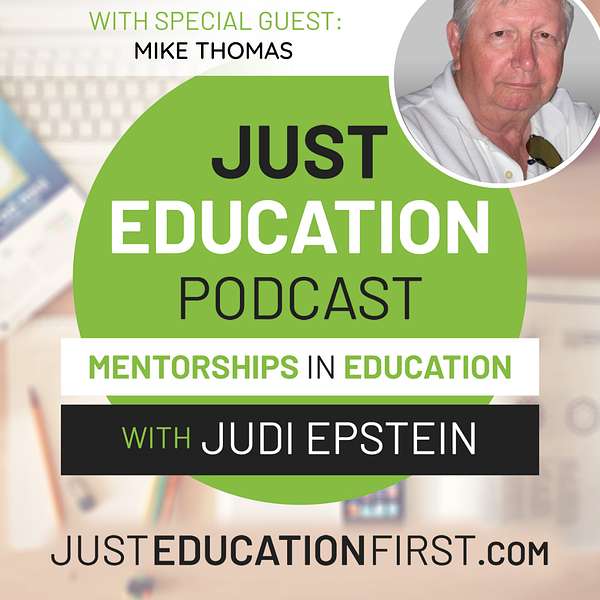
Just Education Podcast: Mentorships in Education
Just Education Podcast: Mentorships in Education
The Entrepreneurial side to the Dyslexic
Dyslexia is a diagnosis that often brings confusion, trepidation and in some cases, sadness, to parents and children. But, when we look further, we find that some of the most creative, successful and interesting people were/are Dyslexic.
Mentorships in Education is brought to you by Just Education, LLC and is hosted by Judith Epstein. Judi has a Master's degree in Education with a concentration in Language Acquisition. She is certified in special education with post-graduate coursework and professional development in Cognitive Behavior therapy (CBT), Social Thinking, Collaborative and Proactive Solutions (CPS), and Acceptance and Commitment Therapy (ACT). Judi created Just Education, LLC and its podcast component, to compile a free resource library for mentors of students who struggle and address a wide variety of topics that are all related to education and student success.
Connect With Mike Thomas
The Successful Dyslexic
Book on Amazon
About Mike Thomas
As a dyslexic child in the late 40’s and 50’s I was faced with trying to make sense of my disability. At that time there was no name for what I had, and even though no one knew what was wrong with me, I was still faced with the over whelming task of dealing with my problem with reading if I was ever to have a “normal” life.
With the help of a loving family and support from teachers and friends, I was able to succeed in reaching a functional level of reading. As a result, in 1967, I earned a B.S. degree in Physiological Psychology. As a part of my studies in learning disorders, I taught in the Psychological Clinic School at UCLA. After graduation I took a job as a Psychological Social Worker in a training school for juvenile delinquent boys.
Many of these boys had problems with reading and as a result had great difficulty functioning in a normal classroom environment. In the 1980’s, I taught in the public school system in Nashville, TN. In addition, I tutored a number of dyslexic children after school. I found that most of these kids struggled because they had never learned ways of compensating for their dyslexia. They lacked the kind of study skills needed by dyslexics to overcome their problems with reading and learning in general. I shared some of the techniques that I had developed for myself over the years and was amazed at their success. Most of the kids I worked with went from D’s and F’s to A’s and B’s in less than a semester.
Here are some of the positive qualities around being dyslexic: - Dyslexics often enjoy and excel at solving puzzles. - Dyslexics have an excellent comprehension of the stories read or told them. - Most dyslexics often have a better sense of spatial relationships and better use of their right brain. - Dyslexics have excellent thinking skills in the areas of conceptualization, reason, imagination, and abstraction. - Dyslexics have a strong ability to see concepts with a "big picture" perspective. - Dyslexics are adept to excellence in areas not dependent on reading. - Dyslexics typically have a large spoken vocabulary for their age. - Dyslexics tend to be more curious, creative, and intuitive than average. - Dyslexics’ special mode of thought easily produces the gift of mastery. - Dyslexia is not related to low intelligence.
CONNECT WITH US
Our website and podcasts are available here
Judi on Linkedin